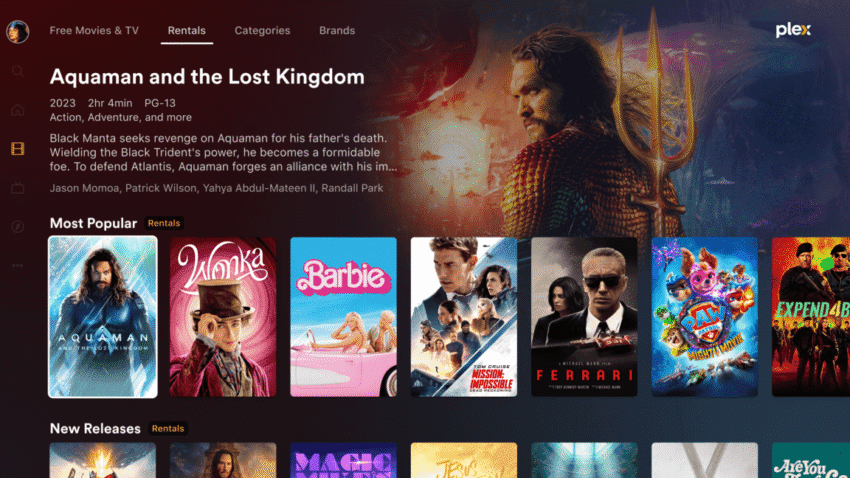
plex s crackdown on free remote streaming Plex is beginning to enforce its new regulations that restrict users from remotely accessing personal media servers without a subscription fee.
plex s crackdown on free remote streaming
Overview of Plex’s New Rules
Plex, a popular media server platform, has announced significant changes to its remote access policies. Previously, users could access a server owner’s media library for free, even when outside the owner’s local network. However, in a move to monetize its services further, Plex has introduced new rules requiring server owners to have a Plex Pass subscription to grant remote access to their libraries. This subscription model, which was first announced in March, aims to enhance the platform’s sustainability while providing additional features to paying users.
Subscription Options
Under the new guidelines, there are two primary subscription options available for users wishing to access Plex remotely:
- Plex Pass: This is the full subscription tier, starting at $7 per month. It offers a comprehensive set of features, including offline access, premium music libraries, and enhanced metadata options.
- Remote Watch Pass: Launched in April, this is a more affordable option priced at $2 per month. While it allows users to access another person’s Plex server remotely, it comes with fewer features compared to the Plex Pass.
These changes are part of Plex’s broader strategy to generate revenue while maintaining a high-quality user experience. The introduction of tiered subscription options allows users to choose a plan that best fits their needs and budget.
Implementation Timeline
The new rules officially took effect on April 29, 2025. However, the rollout of these changes is occurring gradually. According to a recent post on the Plex forums by a Plex employee, the enforcement of the subscription requirement for remote access is starting this week, particularly affecting users of the Plex Roku OS app. This gradual implementation is likely designed to give users time to adjust to the new requirements and to minimize disruption to their streaming experiences.
Community Reactions
The response from the Plex community has been mixed. Some users appreciate the need for Plex to monetize its services, especially given the increasing costs associated with maintaining and developing the platform. Others, however, express frustration over the abrupt changes, particularly those who have relied on free remote access for years.
Many users have taken to online forums and social media to voice their opinions. Some have suggested that Plex could have provided more advance notice or a longer transition period for users to adapt to the new subscription model. Others have expressed concern that the changes may alienate casual users who do not wish to pay for a service they previously accessed for free.
Implications for Users
The enforcement of these new rules will have several implications for Plex users, particularly those who have been utilizing the platform for free remote access. Here are some key considerations:
- Increased Costs: Users who previously accessed media libraries without a subscription will now need to either purchase a Plex Pass or a Remote Watch Pass. This could lead to increased costs for users, particularly those who access multiple servers.
- Impact on Content Sharing: The new rules may discourage users from sharing their media libraries with friends and family, as the requirement for a subscription could complicate the process. This could lead to a decrease in the communal aspect of Plex, which has been a significant draw for many users.
- Potential Migration to Alternatives: Some users may seek alternative platforms that offer free remote access, potentially leading to a loss of user base for Plex. This could impact the platform’s overall growth and community engagement.
Background on Plex
Plex was founded in 2008 and has since evolved into a leading media server platform, allowing users to organize and stream their personal media collections. The platform supports a wide range of media formats and offers features such as transcoding, which adjusts video quality based on the user’s internet speed. Plex has also expanded its offerings to include live TV, news, and a variety of free ad-supported content.
Over the years, Plex has built a loyal user base, with millions of active users worldwide. The platform’s flexibility and user-friendly interface have made it a popular choice for media enthusiasts looking to create their own streaming libraries. However, as the streaming landscape becomes increasingly competitive, Plex has recognized the need to adapt its business model to ensure long-term viability.
Stakeholder Perspectives
Various stakeholders within the Plex ecosystem have expressed their views on the new subscription requirements. These include server owners, casual users, and industry analysts.
Server Owners
For server owners, the new rules present both challenges and opportunities. Many server owners have invested significant time and resources into curating their media libraries. The requirement for a subscription may lead some to reconsider whether they want to continue sharing their libraries with others. However, for those who see value in the additional features offered by the Plex Pass, the subscription may be justified.
Casual Users
Casual users, who may not have a strong attachment to the platform, could be the most affected by these changes. For many, the prospect of paying for a subscription may not be appealing, especially if they only occasionally access media libraries. This demographic may be more likely to explore alternative platforms that offer free services, potentially leading to a decline in Plex’s user base.
Industry Analysts
Industry analysts have noted that Plex’s decision to implement a subscription model reflects a broader trend in the streaming industry. As competition intensifies, many platforms are exploring ways to monetize their services while maintaining user engagement. Analysts suggest that Plex’s move could be a necessary step for the platform to remain competitive in a crowded market.
Future of Plex
Looking ahead, the future of Plex will depend on how successfully it can navigate these changes while retaining its user base. The introduction of subscription options may provide a much-needed revenue stream, but it also poses risks if users feel alienated by the new requirements.
To mitigate potential backlash, Plex may need to focus on enhancing the value of its subscriptions. This could involve introducing new features, improving user experience, and offering exclusive content that justifies the cost of a Plex Pass or Remote Watch Pass. Additionally, Plex could consider implementing promotional offers or discounts to encourage users to transition to paid subscriptions.
Conclusion
Plex’s crackdown on free remote streaming access marks a significant shift in its business model. While the new subscription requirements may help the platform generate revenue, they also pose challenges for users accustomed to free access. As Plex rolls out these changes, the company will need to carefully monitor user feedback and adapt its offerings to ensure it remains a viable option for media enthusiasts.
Source: Original report
Was this helpful?
Last Modified: November 26, 2025 at 3:36 am
3 views















